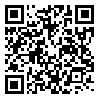Wed, Nov 26, 2025
[Archive]
Volume 34, Issue 1 (2-2020)
Med J Islam Repub Iran 2020 |
Back to browse issues page
Download citation:
BibTeX | RIS | EndNote | Medlars | ProCite | Reference Manager | RefWorks
Send citation to:



BibTeX | RIS | EndNote | Medlars | ProCite | Reference Manager | RefWorks
Send citation to:
Saeidinejat S, Ghaemi Belhouri N, Attarian F. Assessment of intelligence quotient score in children at the age of six with suspected congenital hypothyroidism: A retrospective cohort study. Med J Islam Repub Iran 2020; 34 (1) :797-801
URL: http://mjiri.iums.ac.ir/article-1-5638-en.html
URL: http://mjiri.iums.ac.ir/article-1-5638-en.html
1. Department of Persian Medicine, School of Persian and Complementary Medicine, Mashhad University of Medical Sciences, Mashhad, Iran , saeedish1@mums.ac.ir
Abstract: (2205 Views)
Background: The clinical suspicion of Congenital Hypothyroidism (CH) is identified by abnormal results in the first test of Thyroid Stimulating Hormone (TSH) (5-9.9 mIU/L), and normal results in re-test (TSH<4 mIU/L). The CH has a contribution to physical and mental health. This study aimed to determine the Intelligence Quotient (IQ) score in children with suspected congenital hypothyroidism.
Methods: This research is a retrospective cohort study conducted in Mashhad, Iran. The IQ scores of 1976 children at the age of 6 were considered as an outcome variable. The history of CH screening for each newborn was assessed, then all suspected CH newborns that diagnosed healthy in re-test were considered as an exposed group, the effects of this situation on IQ score was assessed using logistic regression. All analysis was performed in STATA.
Results: The averages of IQ score (p<0.001), weight (p=0.024), and height (p<0.001) in the exposed group were lower than the unexposed group. The exposed group was related to those whose parental education was less or equal to 12 years (p<0.001). Similarly, the history of CH and maternal education for ≤12 years were detected as risk factors for having an IQ score of <90 in children.
Conclusion: Aside from the link between parental education and clinical suspicion of CH in neonates, our findings underline the possible strong effect of CH status and maternal education for ≤12 years on reducing IQ scores in the next years of child life.
Methods: This research is a retrospective cohort study conducted in Mashhad, Iran. The IQ scores of 1976 children at the age of 6 were considered as an outcome variable. The history of CH screening for each newborn was assessed, then all suspected CH newborns that diagnosed healthy in re-test were considered as an exposed group, the effects of this situation on IQ score was assessed using logistic regression. All analysis was performed in STATA.
Results: The averages of IQ score (p<0.001), weight (p=0.024), and height (p<0.001) in the exposed group were lower than the unexposed group. The exposed group was related to those whose parental education was less or equal to 12 years (p<0.001). Similarly, the history of CH and maternal education for ≤12 years were detected as risk factors for having an IQ score of <90 in children.
Conclusion: Aside from the link between parental education and clinical suspicion of CH in neonates, our findings underline the possible strong effect of CH status and maternal education for ≤12 years on reducing IQ scores in the next years of child life.
Type of Study: Original Research |
Subject:
Preventive Medicine & Community Health
Send email to the article author
| Rights and permissions | |
 |
This work is licensed under a Creative Commons Attribution-NonCommercial 4.0 International License. |








